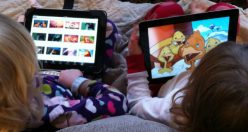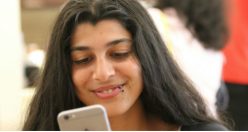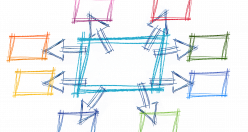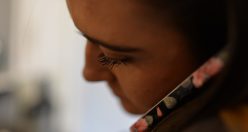This is a description of what you can expect to find within the Research results section. This is a description of what you can expect to find within the Research results section.
Search Global Kids Online
-

Online risks and harm: lessons from New Zealand
17th February 2020
Netsafe’s latest research provides insights into New Zealand children’s experience of online risks and their perceptions of harm. It’s the second report from Ngā taiohi matihiko o Aotearoa – New Zealand Kids Online, Netsafe’s implementation of the Global Kids Online methodology.
-

Global Kids Online New Zealand
11th February 2020
Netsafe is working to bring the Global Kids Online methodology to Aotearoa, New Zealand. Netsafe has a statutory role under New Zealand’s Harmful Digital Communications Act (HDCA) to resolve complaints from victims and provide educational content and services. Participation in Global Kids Online aims to support this role and to contribute to Netsafe’s efforts to maximise digital opportunities for New Zealand’s internet users and prevent online harm.
-

Setting the global research agenda for the new decade
11th February 2020
The Global Kids Online network continues to generate new findings, as more country partners join and extend the cross-national research effort. For the international Safer Internet Day 2020 we reflect on the lessons learned from recent research and think about the research agenda for the new decade.
-

Influencing policy and practice, building global understanding and action
8th January 2020
We commissioned an independent evaluation to understand the ways in which Global Kids Online research has been taken up and used in partner countries and internationally. The study found that Global Kids Online research findings are regarded as the premier resource on children’s experiences online, both in partner countries and by international stakeholders and influencers. The research has been used extensively to influence policy and practice in nine partner countries, to build global understanding and action, and to influence international debate and action.
-

Serbia: children rarely do creative activities online
9th December 2019
Children begin to use the internet at a young age and in a personalised way – from their own mobile devices and away from parental supervision, which has important policy and practice implications, according to a new EU Kids Online report on Serbian children’s internet use launched today. The survey with 1,150 internet-using children aged 9-17 years from 60 schools across the country was co-funded by the University of Oslo, UNICEF and OSCE Serbia, as well as the Serbian Ministries of Education and Telecommunications.
-

Brazil: mobile-only internet use grows
5th December 2019
The 7th edition of the ICT Kids Online Brazil survey was recently launched by the Regional Center for Studies on the Development of the Information Society (Cetic.br). Drawing on a nationally representative survey with 2,964 internet-using children aged 9 to 17 and one of their parents, the Brazilian study is the longest-running in the Global Kids Online network with annual waves since 2012.
Popular tags








